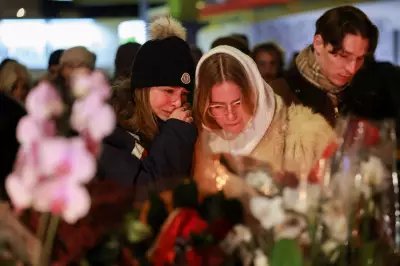
A Manchester man has been charged with terrorism offences after a horrifying attack on a synagogue where he was heard screaming he was going to kill children while brandishing a knife.
Khalil Mohamed, 31, allegedly targeted the Holy Law Synagogue in Broughton Park during Simchat Torah celebrations, creating panic among worshippers including families with young children.
Terrifying Threats Against Children
According to eyewitnesses and court documents, Mohamed shouted "I'm going to kill the children" multiple times while wielding a large knife outside the synagogue. The attack occurred on October 13th when the building was filled with congregants celebrating the Jewish holiday.
One shaken resident described the scene as "utterly terrifying" and said parents rushed to protect their children as the threats echoed through the neighbourhood.
Counter-Terrorism Response
Greater Manchester Police confirmed the incident is being treated as terrorism-related, with Mohamed facing charges of preparing terrorist acts and possession of a bladed article. The case is now being handled by the North West Counter Terrorism Unit.
Detective Chief Superintendent Andrew Meeks stated: "This was a deeply disturbing incident that has understandably caused significant concern within the local community."
Community in Shock
The Manchester Jewish community has expressed both relief at the swift police response and anxiety about the nature of the attack. Local Jewish leaders have been working closely with police to enhance security measures around religious buildings.
A community spokesperson noted: "To hear someone specifically threatening to kill children during a religious celebration is every parent's worst nightmare."
Mohamed remains in custody and is scheduled to appear at Manchester Crown Court for a preliminary hearing next month. The investigation continues as authorities work to determine any potential links to wider extremist networks.





